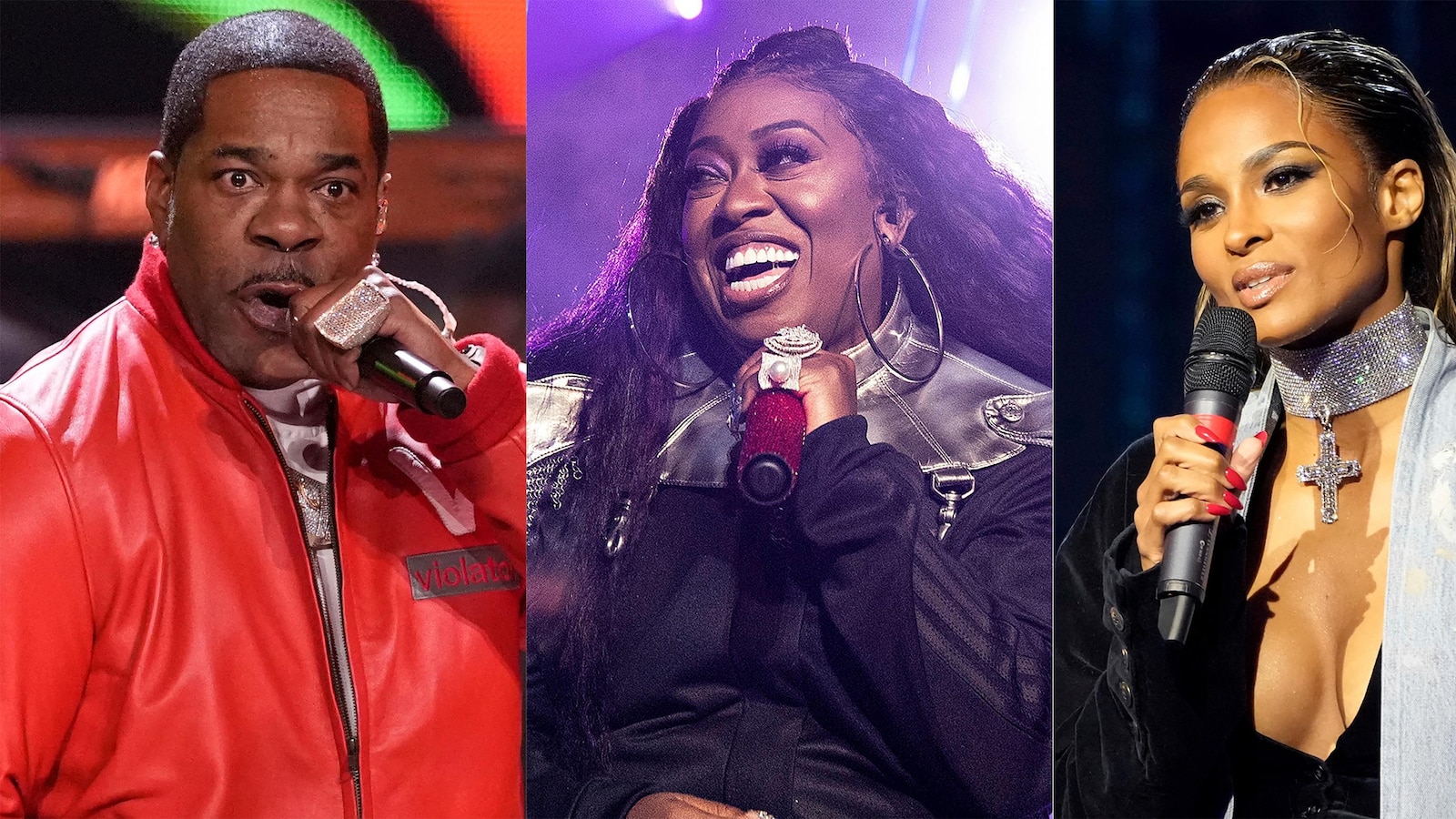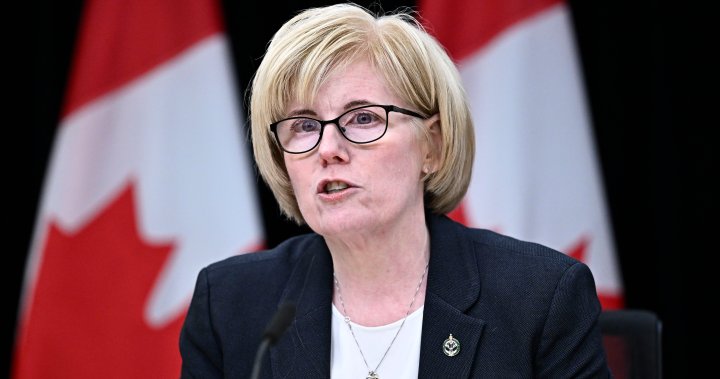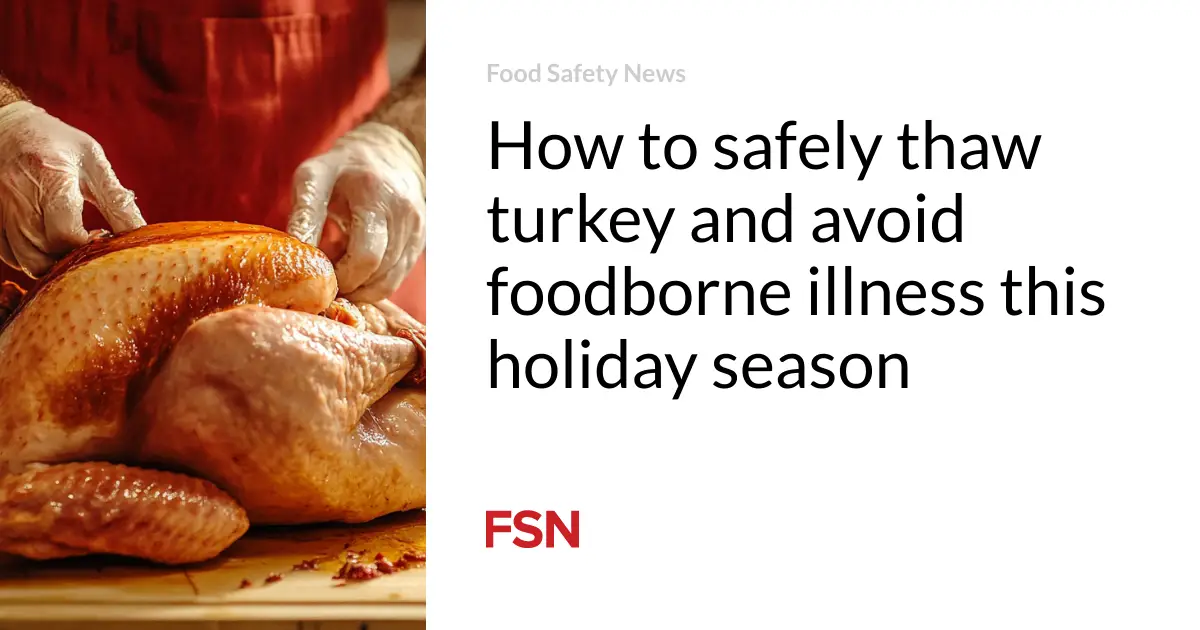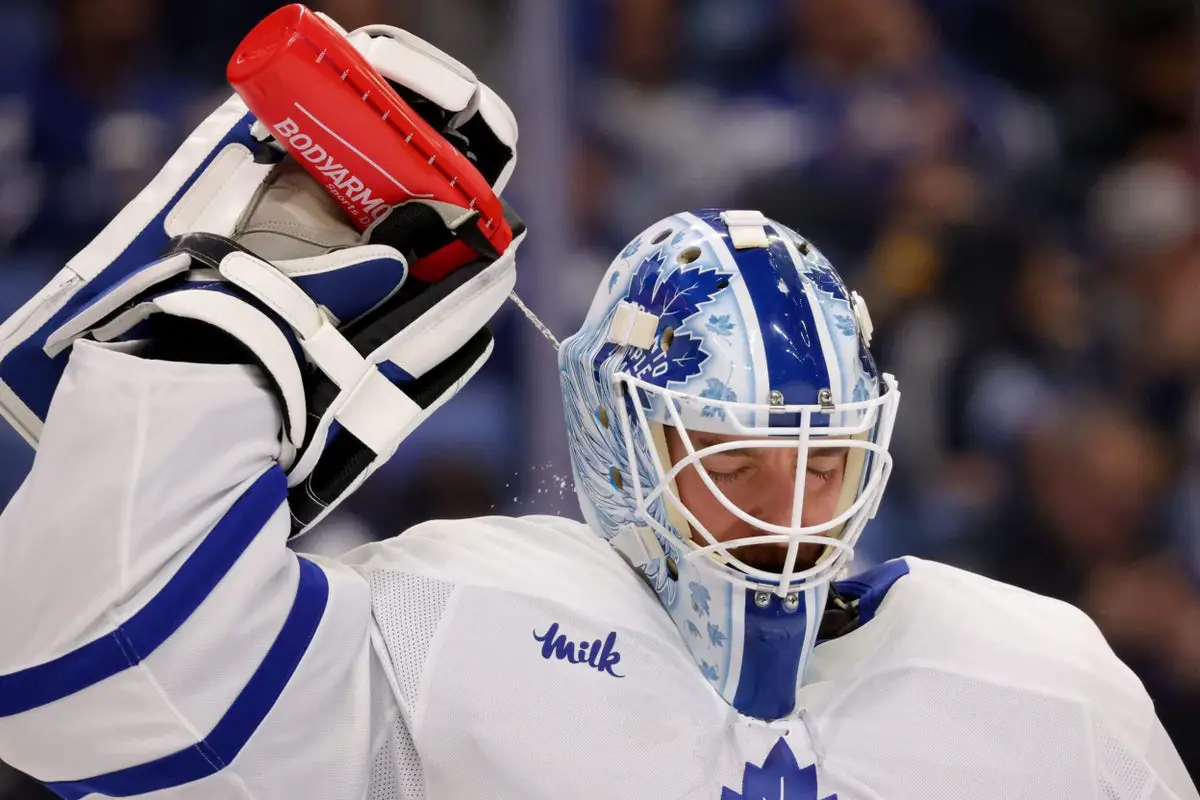
Not since Line of Duty has a British police drama so deftly and absorbingly picked apart the ethics and realities of policing as Blue Lights. Last year, in a television landscape teeming with procedurals, more than 6 million viewers were reeled into the BBC show’s depiction of frontline policing in Northern Ireland, with Belfast’s complex past, present and future pulsing through the series. At the heart of the show’s potent ensemble is Sian Brooke as Grace Ellis, an anomaly among her fellow rookies as a 41-year-old single mum and former social worker from the Midlands. “Now I’ve played her for a while, her gear doesn’t feel as alien,” says Brooke with a laugh. “Walking around with stab vest, truncheon and pistol, I felt less like the uniform was wearing me.”
The first series was a masterclass of explosive action and discreet character work. Brooke was superb as Grace, a woman forced to reconcile her, sometimes careless, professional instinct to intervene with the harsh realities of policing communities that are still dealing with the sectarian legacy of the Troubles. And through the new season, the actor nimbly balances Grace’s generosity of spirit with a buried insecurity over her personal circumstances.
“Grace is no longer the wide-eyed idealist,” Brooke tells me. “She’s slightly hardened and understands the boundaries of the job. Personally, she’s all at sea now her son’s at uni in Manchester, which I find interesting as a parent, although my kids aren’t at that age yet [Brooke lives in London with director husband Bill Buckhurst and their two sons]. I don’t think you see that story on screen very often, especially as she’s doing a job where you need some certainty.”
In series one, when Grace asked her professional partner and very slow-burning love interest Stevie (Martin McCann) whether “maybe there’s a different way of doing the job?”, it struck at the core of the show, although the answer remains elusive as it enters its second season. We rejoin the team a year on, still reeling from the shocking murder of gnarled veteran Gerry (Richard Dormer), and with loyalist factions jockeying for control of the Belfast drugs trade.
While the first episode plays next door to us (“Who wants to watch themselves in HD, from every angle, especially as they get older?”), Brooke is perched next to me in a booth of the screening room bar, wearing a white blouse and fawn trouser suit. The 44-year-old leans in frequently, not just to be heard over the muzak but to make a point. Like Grace, she has a soft-spoken warmth you could mistake for diffidence, were it not for her excitable passion for her work. And boy, is she passionate about Blue Lights.
“I just fell in love with the writing,” she says. “It was so clever and accessible. You often assume people in uniform know exactly what they’re doing, that this couldn’t possibly be their first day on the job,” says Brooke. “Because Blue Lights is centred around three rookies [Grace, Katherine Devlin’s Annie and Nathan Braniff’s Tommy], audiences go on the journey with them rather than feel removed from it.”
Brooke is thoughtful in conversation and careful not to stray into areas where she feels unqualified, but she is also focused and principled – a combination surely underpinning her professional versatility. While this came as no surprise to theatregoers – her Juliet for the RSC in 2004 was described as “thrilling”; a performance under Mike Leigh’s direction in 2011’s Ecstasy “like a dagger through the heart” – even dedicated TV viewers might only have vaguely recognised Brooke from a steady stream of under-the-radar screen walk-ons in Lewis, Foyle’s War et al. All that came to an abrupt end in 2017.
“I was so flipping lucky to do Sherlock,” she marvels. “I went in for so many parts that I thought: they just can’t make up their minds. When they finally revealed it was Eurus [Sherlock’s brilliant, chameleonic, psychotic sister], I was dumbstruck. You don’t get to play all those parts in one show unless you’re at drama school. It was so clandestine, I couldn’t even tell half my family: why are you going to Wales every week? Oh, I’m doing a police drama…”
Nothing wrong with those, of course: Grace may be a far less ostentatious gig, but she is also Brooke’s first really long-term character study, given a third and fourth series have already been commissioned. It also allows an opportunity to burrow more deeply into social issues reflected explicitly in a second series amid rising addiction, homelessness and crime, although Brooke argues that Blue Lights is fundamentally hopeful. “It’s about the power of community, people with good intentions, a social conscience and a strong moral compass. That’s sometimes lacking in society, and this show is redemptive in lots of ways.”

Watch Apple TV+ free for 7 days
New subscribers only. £8.99/mo. after free trial. Plan auto-renews until cancelled

Watch Apple TV+ free for 7 days
New subscribers only. £8.99/mo. after free trial. Plan auto-renews until cancelled
As the daughter of a policeman who worked his way up from neighbourhood bobby to CID, Brooke recognised aspects of the world (“it was normal for me, seeing my dad going out with his uniform on then coming back for a cuppa and some banter with his colleagues”), although she never worried about her dad’s safety. “I was quite naive. He only told us the things that happened later: Oh, my God, you were dealing with that? But he had integrity, honesty and tried to make his small part of the world a bit better, like Grace. And he absolutely loves the show, thankfully.”
What does Brooke make of the current state of policing? “Gosh… Policing is in a very odd place at the moment. It’s been saddening and shocking to hear what’s been happening. Community policing is the biggest thing: more funding and more presence, getting to know your people and area.” She grins. “But they don’t need me telling them what to do. I’ll leave it to the experts.”
She is brisker in dismissing charges of “copaganda” in Blue Lights, preferring to champion the nuance of the writing: “These are recognisable, rounded characters you come to care about, for all their flaws.”
We should be wary of doing trigger warnings for every single thing
Gerry’s demise has left Brooke nervously checking her scripts, perhaps wisely given her brief, brutal stint on House of the Dragon: halfway through the first episode of the Game of Thrones prequel, her queen consort Aemma Arryn died gruesomely in childbirth. “When they told me, I was like, ‘Oh…’” she laughs. “But it was a great experience. We had full rehearsals where everybody got it on its feet like a piece of theatre, with blood and everything. Loads of people found it stressful to watch, but it was fun to film.” She roars with laughter. “What does that say about me?”
The episode was preceded by a message regarding “graphic scenes of childbirth that viewers may find upsetting”. Trigger warnings in theatre have been rubbished by actors including Ralph Fiennes and Matt Smith, and when I ask Brooke if they are needed, she is cagey.
“With extreme circumstances, yes,” she says. “Although it depends how you portray them within the play itself. We should be wary of doing it for every single thing. I understand it, because who knows what somebody’s been going through, but it is to be used cautiously and wisely.”
Six years since her last stage role, Brooke is feeling the itch once again, and recalls fondly her first collaboration with Benedict Cumberbatch in a 2015 production of Hamlet.
“I’d always thought Ophelia a bit of a thankless character,” she recalls of Hamlet’s doomed, dominated lover. “I wasn’t that keen on playing her, because she gets such a rough ride and I wasn’t sure how interesting I found her. When they asked me to come in, I was seven months pregnant – really not an Ophelia! But I waddled my way through it, and I’m glad I did. By the time the performances started I had a three-month-old and felt like a shell, so that paper-thin tiredness played into it. And the buzz around Ben was totally bonkers – I’ve never known anything like it.”
Until her next screen role, that is. Her mesmerising, terrifying Eurus secured leading roles in high-profile shows ranging from the urgently topical (she was a suspicious neighbour in Shannon Matthews drama The Moorside, and played an NHS whistleblower in The Cure) to the lighter (Good Omens, Apple TV+’s adoption comedy Trying), alongside a fiercely committed performance as a woman in recovery from an eating disorder in 2020’s Body of Water. Quite the journey for a young girl from Lichfield whose horizons were exploded by an outdoor production of A Midsummer Night’s Dream.
“It was magical,” she says, recalling the childhood school trip. “After that, I was taken under the wing of a woman called Ellie. She passed away at Christmas, but she was a drama school examiner and my mentor growing up and her head was an encyclopaedia of plays – I’d go to her house and she’d go, ‘This is Ibsen, this is Pinter, read this!’ It became my world, every night of the week. … I did Aristophanes’ The Frogs at Lichfield Youth Theatre when I was 11!”
The morning we meet, Birmingham City Council announces swingeing cuts to the sort of arts funding that made such formative experiences possible. “I think how privileged I was,” she says, genuinely distraught. “The situation is desperate. Arts funding is often seen as a non-essential, but you’re going to lose grassroots writers, lighting designers, costume designers, not just actors – it makes no economic sense given the investment opportunities. I wouldn’t have gone into this without it. I told Ellie there was no way I could audition for Rada [London’s Royal Academy of Dramatic Art] and she went, ‘Uh, yes, you can.’ And I got an Arts Council grant to do it.”
Next up are a fourth series of Trying and Netflix’s south London superhero drama Supacell, while she nurtures an interest in writing, directing and “the idea of being more in control”.
Above all, though, it is work like Blue Lights with a purpose and point that most excites Brooke. “Look at Mr Bates vs the Post Office,” she says. “Whatever you can do to move the dial is worth it. That’s what makes my heart sing.”
‘Blue Lights’ begins on BBC One on Monday 15 April at 9pm







